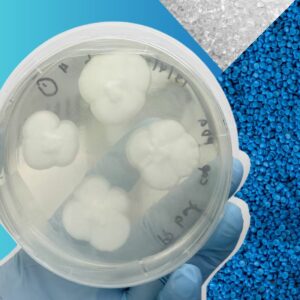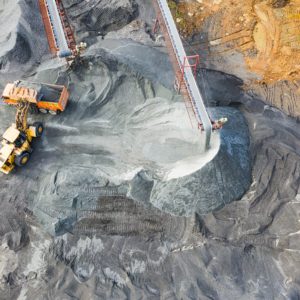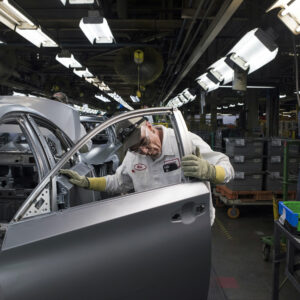Nuclear energy, derived from an atom’s core, has been an ongoing debate for decades. The world is searching for better energy resources, and many consumers think nuclear energy is the best route to take. However, some are apprehensive as the list of pros and cons of nuclear energy grows. Breaking Down Nuclear Energy Pros and...
Can this Plastic-Eating Mold Help Solve the Plastic Pollution Challenge?
The backyard fungi can break down plastic in just 140 days.
John Bode Discusses the Future of Corn Products
The Corn Refiners Association is finding cheaper and more environmentally friendly alternatives to traditional plastic—through corn.
What China’s Ban on Rare Earths Processing Technology Exports Means
"The rollout of major export restrictions for graphite, gallium, germanium, rare earth extraction, and separation technologies in less than one year should be a powerful signal to U.S. policymakers that although they are late to the critical minerals game, there is a significant need to both build domestic capabilities and leverage international cooperation to facilitate rapid sourcing and developing of processing capacity."
How the Private Sector Can Protect American Wetlands
Through private sector intervention, our country could protect and restore wetlands.
Nuclear Power Is Poised for a Revival
Nuclear power is back in vogue. Surging power demand driven by electrification and, most notably, the incredible energy needs of data centers has tech companies and utilities not just flirting with a nuclear power revival but ponying up. With new data centers poised to consume the power of entire cities, the race is on to...
Katie Tubb Outlines Regulatory Reforms Needed to Advance Nuclear
Analysts and experts such as Katie Tubb are advocating for common-sense reforms that will spur energy innovation, keep energy costs low, and protect the environment. As the world turns its eyes to COP, it is important that remember Nuclear Science Week and all the benefits that nuclear energy provides.
Regulations Can’t Solve Climate Change
Rather than relying on the brute power of government to solve climate change, we should be looking towards those in the private sector, local citizens, and grassroots organizations to develop local solutions for these issues.
$4.4 Billion EV Battery Plant to be Built in the U.S.
The EV revolution has arrived in America and, with buy-in from the private sector, it is here to stay.
Air Force Working on Fuel-Saving, 3D-Printed ‘Microvanes’ for C-17
Chris Gordon writes in Air & Space Forces Magazine about a retrofit to reduce fuel usage and the Air Force’s environmental footprint. “By reducing drag, the Air Force can save fuel by reducing the workload of the engines. C-17s with microvanes installed save around one percent in fuel over regular C-17s, according to the service....









